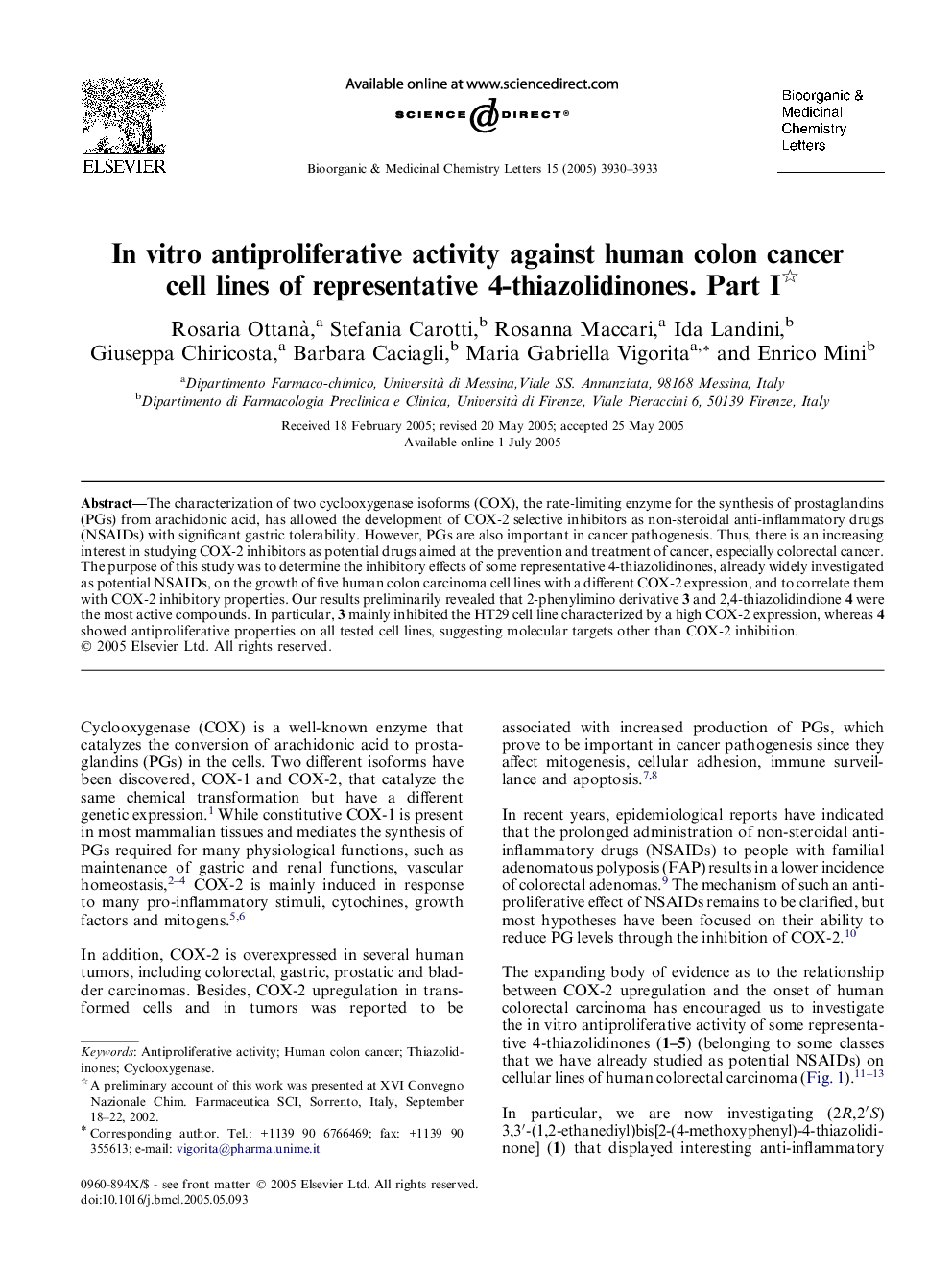| Article ID | Journal | Published Year | Pages | File Type |
|---|---|---|---|---|
| 1378365 | Bioorganic & Medicinal Chemistry Letters | 2005 | 4 Pages |
The characterization of two cyclooxygenase isoforms (COX), the rate-limiting enzyme for the synthesis of prostaglandins (PGs) from arachidonic acid, has allowed the development of COX-2 selective inhibitors as non-steroidal anti-inflammatory drugs (NSAIDs) with significant gastric tolerability. However, PGs are also important in cancer pathogenesis. Thus, there is an increasing interest in studying COX-2 inhibitors as potential drugs aimed at the prevention and treatment of cancer, especially colorectal cancer. The purpose of this study was to determine the inhibitory effects of some representative 4-thiazolidinones, already widely investigated as potential NSAIDs, on the growth of five human colon carcinoma cell lines with a different COX-2 expression, and to correlate them with COX-2 inhibitory properties. Our results preliminarily revealed that 2-phenylimino derivative 3 and 2,4-thiazolidindione 4 were the most active compounds. In particular, 3 mainly inhibited the HT29 cell line characterized by a high COX-2 expression, whereas 4 showed antiproliferative properties on all tested cell lines, suggesting molecular targets other than COX-2 inhibition.
